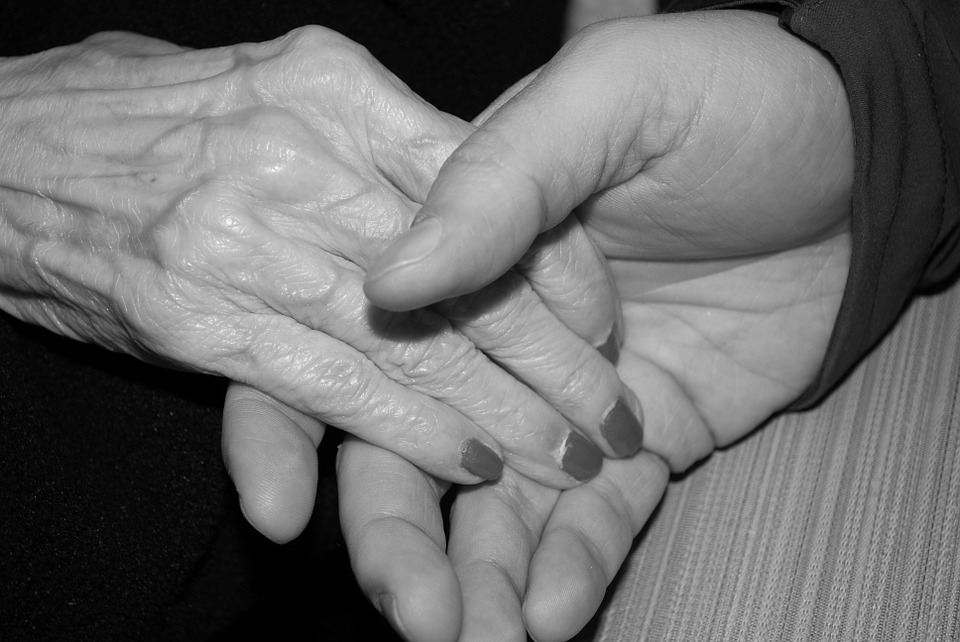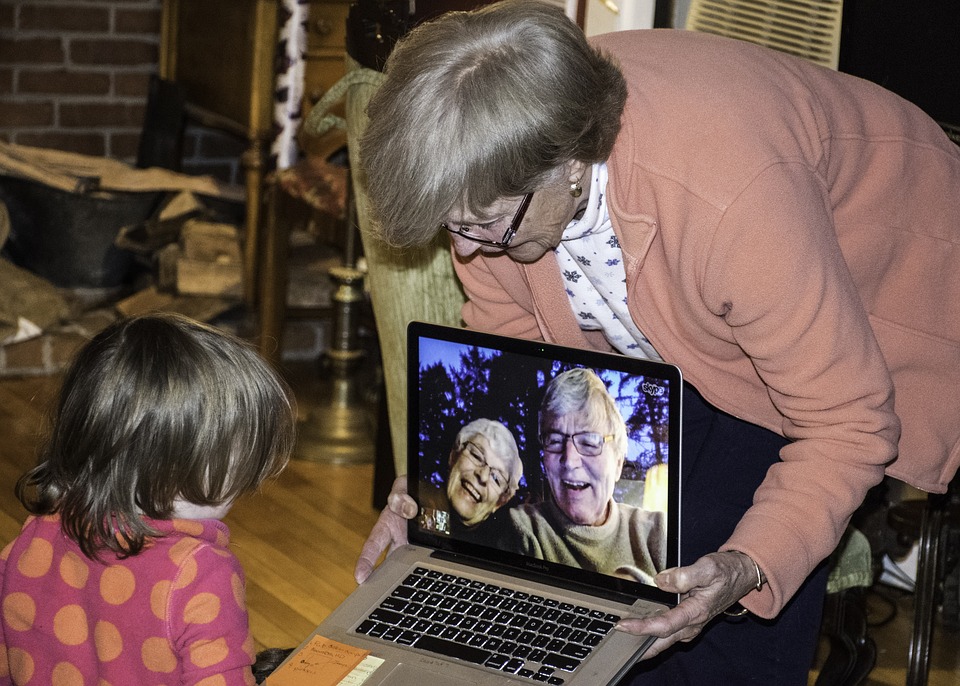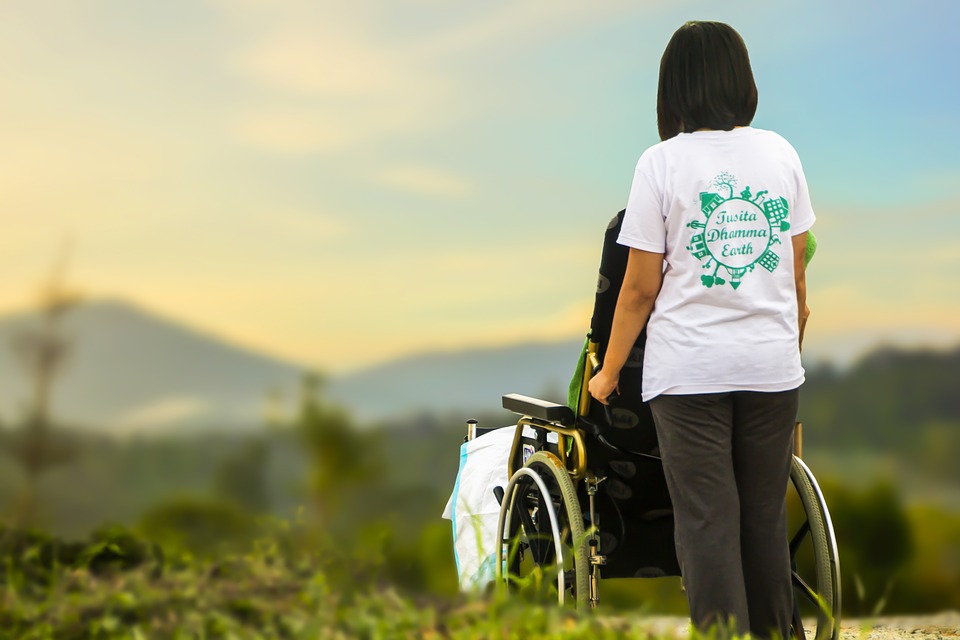The Gift of Connectedness
 The holiday spirit may have a different feel when a family member is ill. Julie Perry, a staff chaplain at the Emily Couric Clinical Cancer Center in the University of Virginia Health System, looks at how patients, caregivers, and their families can bring new meaning to old traditions.
The holiday spirit may have a different feel when a family member is ill. Julie Perry, a staff chaplain at the Emily Couric Clinical Cancer Center in the University of Virginia Health System, looks at how patients, caregivers, and their families can bring new meaning to old traditions.
 Lifetime Learning invites you to share your thoughts as a patient, caregiver, or family member on coping with illness during the holidays.
Lifetime Learning invites you to share your thoughts as a patient, caregiver, or family member on coping with illness during the holidays.
The holiday season is typically a time of year when families from many different cultures come together to celebrate and create special memories. However, if you or a loved one is hospitalized or seriously ill, this season may present challenges and raise some important questions. How can I celebrate when I have so much on my mind, or when I don’t feel well? What will my life look like in the coming year? And for caregivers specifically, how can I handle this holiday with all its pressures while taking care of my loved one? For hospitalized persons and their families, the traditional holiday spirit may seem far distant indeed.
 These holidays may present a unique opportunity and challenge to focus on what is most important for you and your family. A top priority may simply become to maintain open communication and stay connected. Patients and families alike need to feel the freedom to express their feelings, both positive and negative, as well as to share tears, laughter, memories, and good times together. This sharing of feelings and experiences can serve to create a sense of connection with one another which is vital to a positive holiday experience.
These holidays may present a unique opportunity and challenge to focus on what is most important for you and your family. A top priority may simply become to maintain open communication and stay connected. Patients and families alike need to feel the freedom to express their feelings, both positive and negative, as well as to share tears, laughter, memories, and good times together. This sharing of feelings and experiences can serve to create a sense of connection with one another which is vital to a positive holiday experience.
It can also be important to stay connected with a support network beyond the family. Support groups can provide a wonderful venue for developing supportive relationships. For caregivers, it is especially important to reach out for help as needed. While asking for help can sometimes be difficult, it can reduce your caregiving burden and in the long run be better for both you and your loved one. Self-care practices such as this are an important investment for you as a caregiver to maintain a sense of perspective and well-being during the holidays. Other ways to care for yourself may include things like taking walks, working on a hobby, connecting with a friend, or getting a massage! Adequate rest, exercise, and relaxing time will add to your quality of life, and will indirectly benefit your loved one who is ill.
For patients and caregivers alike it may be important to find some meaning in the experience of illness. Why is this happening to me or my loved one? While there may not be a clear answer to this question, you may realize some good things coming from this illness, such as increased closeness with family or a deeper appreciation of life. Faith traditions may provide avenues for putting this time of illness in perspective. Some ways to explore meaning may include reading or listening to uplifting materials, praying or meditating, talking with a trusted spiritual advisor or close friend, and participating in religious services or rituals.
 Finally, it may be really helpful for both patients and caregivers to let go of some traditional holiday expectations. Minimize holiday stressors as much as possible by taking certain tasks off your plate, and organizing those you choose to keep in such a way as to respect the needs of the entire family this year. Give yourself permission to work and do things at your own pace. Try to be innovative and create some new holiday memories which respect your loved one’s strengths and weaknesses. Instead of traditional gifts this year you may “give” phone calls, emails or texts, audio recordings of special events or family stories, or skyping. The gift of connectedness may be the greatest gift of all for your loved ones to experience.
Finally, it may be really helpful for both patients and caregivers to let go of some traditional holiday expectations. Minimize holiday stressors as much as possible by taking certain tasks off your plate, and organizing those you choose to keep in such a way as to respect the needs of the entire family this year. Give yourself permission to work and do things at your own pace. Try to be innovative and create some new holiday memories which respect your loved one’s strengths and weaknesses. Instead of traditional gifts this year you may “give” phone calls, emails or texts, audio recordings of special events or family stories, or skyping. The gift of connectedness may be the greatest gift of all for your loved ones to experience.
Remember that the most important aspect of the holidays is the love and support we feel from family and friends. In preparing for this holiday keep that awareness at the forefront of your planning. Illness and hospitalization can often help patients and families pare down to essentials what is most important to them. During this holiday season, reflect on and celebrate the strengths you all have developed during this time of illness.
- Having a Drink With Your Donkey: The Absurd in Antiquity
- What Happens to UVA’s Recycling? A Behind the Scenes Look at Recycling, Composting, and Reuse on Grounds
- Finding Your Center: Using Values Clarification to Navigate Stress
- UVA Club of Atlanta: Virtual Pilates Class
- UVA Club of Fairfield/Westchester: Cavs Care - Food Pantry Donation Drive
- UVA Club of Charlottesville: ACC Football Championship Game Watch
